Society

Protest against Venezuelan government in Barcelona, February 2019. PA Images. All Rights Reserved.
The crisis in Venezuela has become a media show between heroes and villains orchestrated by foreign powers. What are the likely outcomes of the current state of affairs? Español
45 days have passed since Maduro became president for a second mandate of six years, and it appears that the crisis in Venezuela has no visible solution.
The strategy of the opposition, facilitating interim president Juan Guaidó, and attempting to bring humanitarian aid into the country in an attempt to gain decisive internal support, has failed.
Maduro still has a solid support base and the potential options for removing him from power are slowly running out.
More questions arise regarding the future of Maduro as the president of Venezuela. Meanwhile, the international community continue exploring their options after the spectacle of Venezuela Live Aid on the Colombian border which sought to destabilize the government.
The international community is entirely divided. The Lima Group are confrontational but not combative, the US remains very assertive and issues continuous warning to Maduro but for internal consumption, the EU are cautious and Russia and China oppose any scenario of violent intervention, which would go against their interests. What options are available now?
What are the potential outcomes?
The first scenario is connected to creating a diplomatic blockade that seeks to exhaust the regime and the military. The second, is that the regime remains strong and the military faithful, and Caracas buys time with internal support during the coming months. The third, that negotiations lead to pacific elections with democratic guarantees.
The Lima Group and the EU have shown resistance to the idea of military intervention, which would be absurd, unilateral, and illegal without the consent of the Security Council.
The last scenario is that in which a military intervention takes place in order to oust Maduro. Many have made declarations in favour of such actions but few are willing to assume the potentially catastrophic consequences for Venezuela and the entire region.
Military intervention: a non-starter
Marco Rubio is one of the many in gthe US who have declared themselves in favour of military intervention, backing Juan Guaidó and Julio Borges arguments in favour of the use of force: "all options are open" is their favourite euphemism. But the Lima Group and the EU on the other hand have shown absolute resistance to the idea, which would be absurd, unilateral, and illegal without the consent of the Security Council. The idea is obviously a non-starter.
In spite of Rubio's violent declarations and his use of a picture of Libyan ex-dictator Gaddafi before and after his capture in his twitter account, the option of non-violence remains the most popular by far.
Colombians citizenship and movements like #NoToWarInVenezuela are demanding pacific solutions, and claiming that humanitarianism must prevail. Most of the international community agree.
What will happen to Juan Guaidó?
One month after declaring himself interim president of Venezuela, supported by more than 60 countries, Guaidó must face the challenge of returning to Venezuela after attending the Lima Group meeting in Bogota. He may be captured on his return.
Capturing Guaidó would be a grave error, and for these reasons it is likely that he will be willing to take the risk to return in spite of the arrest warrant against him.
The failure of the humanitarian operation on the 23th of February has weakened him however his discourse remains strong and he stresses there is no way they can detain him, that he is unstoppable.
Maduro is assessing the risks and benefits of having a free but weakened Guaidó, or a strengthened but imprisoned Guaidó who would be propped up by international outcry.
In any case, the worst option for the opposition leader at this point would be to remain in exile and become a political puppet of the US.
The publicity stunt of humanitarian aid
The strategy of using humanitarian aid as a political weapon has been strongly criticised by NGOs and even the United Nations.
Challenging the neutrality of aid and using this against the Maduro regime discredits the main objective of humanitarian aid which is supposedly alleviating a suffering population.
For many it was obvious the aid was never going to enter. It was clear it was a publicity stunt in which many regional leaders participated, starting with Colombian president Ivan Duque.
What's more, Russia has already warned through its ambassador at the UN that this game led by the US with Venezuela could have dire consequences for the entire world.
Denouncing hunger, the lack of medicines, and precariousness could be a useful strategy. However, pressuring with trucks full of food and medicine trying to cross the border is a mistake.
For many it was obvious the aid was never going to enter. It was clear it was a publicity stunt in which many regional leaders participated, starting with Colombian president Ivan Duque.
When the cameras switched off, and the music ended, there were still no answers to the question of what would happen to the aid trucks stuck at the border.
Levels of instability continue in Venezuela, and it's vital we understand the complexity of this crisis and that we analyse seriously who are the responsible actors in this current escalation of tension that has been referred to by some as a new episode of a new cold war.
But Venezuelans are still starving and obliged to daily flee the country by the thousands. Albeit is clear that the current stalemate situation benefits the survival of those in power, Maduro will better open the avenue for a negotiated way out before the next crisis weakens him further.
DemocraciaAbierta is the global platform that publishes in Spanish, Portuguese and English voices from Latin America and beyond, and connects them with the openDemocracy global debate.Twitter: @demoAbierta



















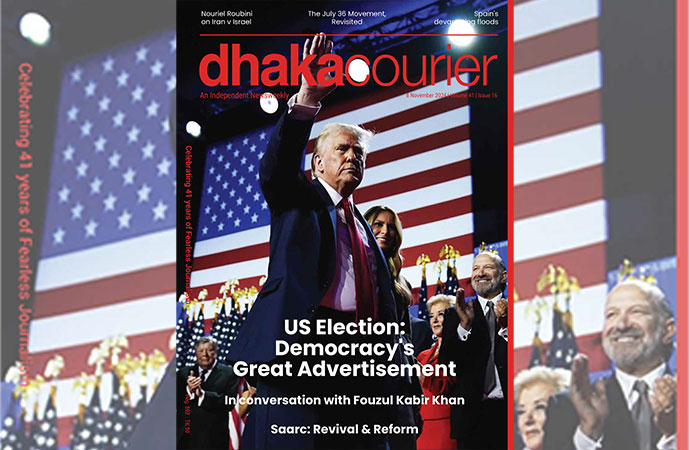
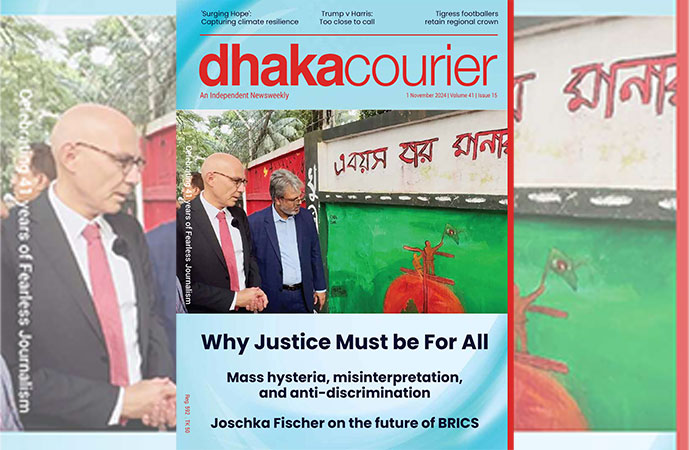
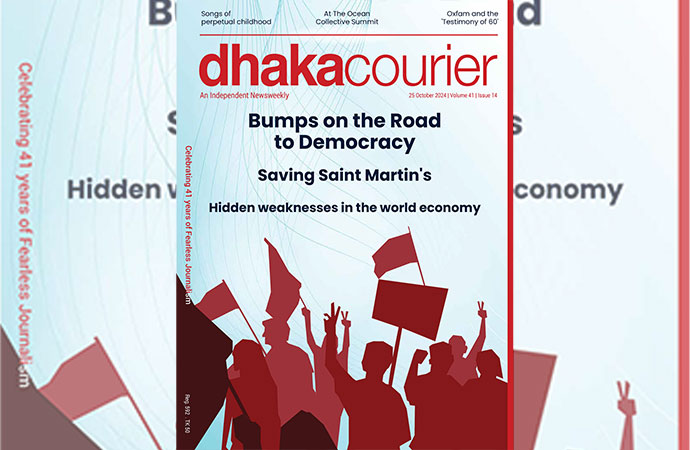
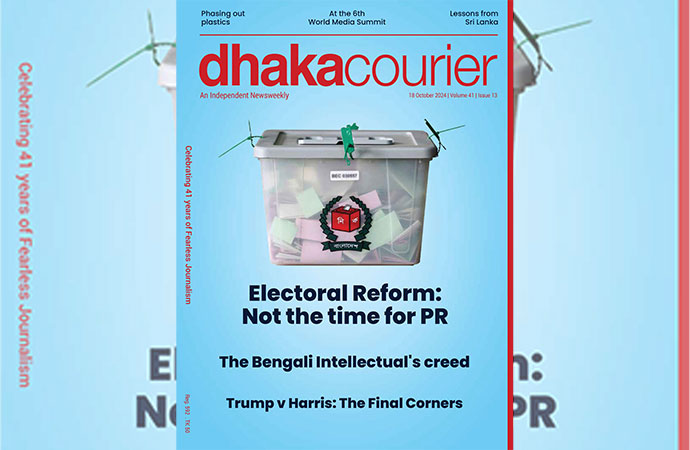
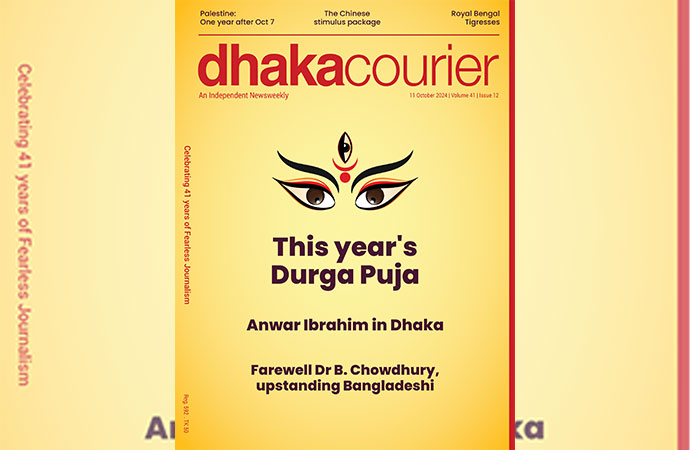
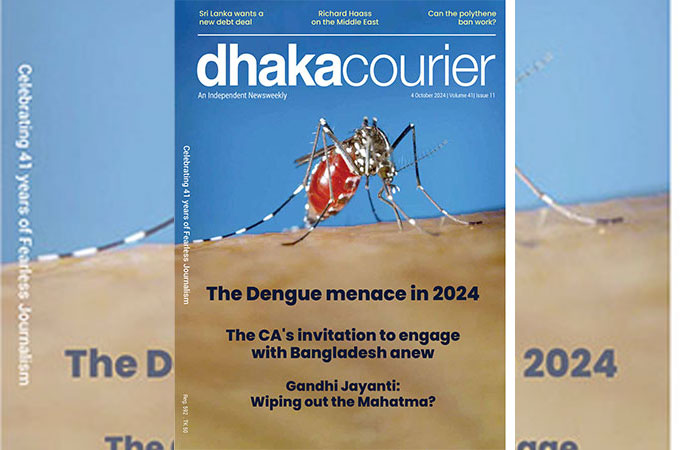
Leave a Comment
Recent Posts
Unity to tackle climate change ...
There is no doubt that climate change is occurring and has the potenti ...
Mismanagement and overcrowding ...
Dhaka Medical College Hospital (DMCH), one of Bangladesh’s large ...
Remarkable achievement for Bangladeshi artists at th ..
We need new economic framework that serves planet, p ..
Prof Yunus calls for mobilising "intellectual, finan ..
Bangladesh, India, Nepal, Bhutan should think of cre ..